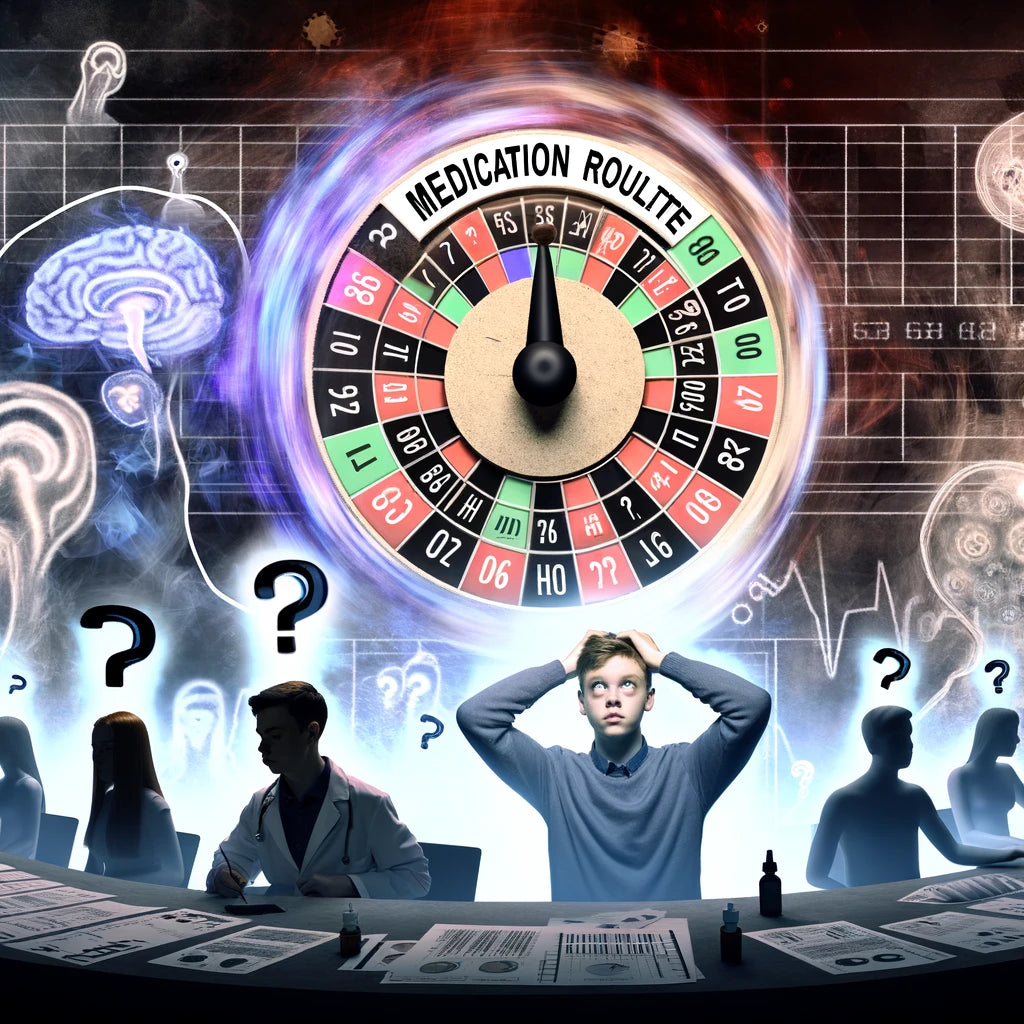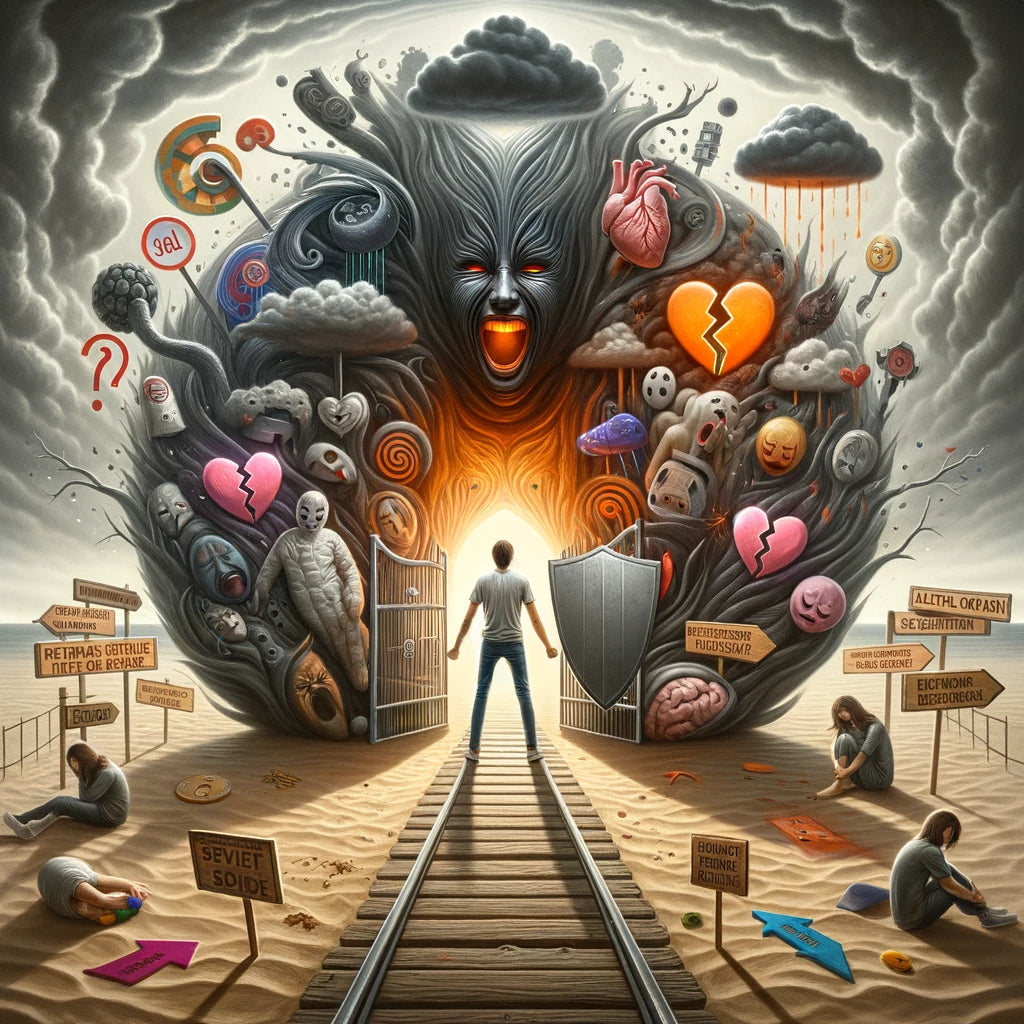"Hey, you on ADHD meds, listen up! This isn't a panic alarm, but you might wanna lean in for this."
Imagine you're playing medication roulette with ADHD drugs. Sounds intense, right? Well, recent findings are showing that this isn't just a game. Teens and young adults might face a wild card – symptoms like paranoia, hallucinations, and hearing things that aren't there. Creepy? Absolutely. But don't toss your meds just yet!
Researchers, those brainy detectives in lab coats, have been sleuthing around and found something startling. Newbies to amphetamines – think Adderall and Vyvanse – might face a higher risk of these spooky symptoms than those popping Ritalin or Concerta. Published in the prestigious New England Journal of Medicine, this study isn't just another page-turner; it's a serious heads-up.
But let's not get ahead of ourselves. If you've been chumming around with Adderall and it's been your BFF, no sweat. The risk is more like finding a four-leaf clover – rare but possible. Dr. Lauren Moran, a bigwig at Harvard and a psychiatrist, assures us that if you're sailing smoothly on your current meds, keep cruising.
But here's the twist: even if the risk is tiny, when you multiply it by millions of ADHD warriors in the U.S., the numbers get real – potentially thousands of psychosis episodes. Mind-boggling, right?
So, why the sudden spotlight on amphetamines? Dr. Moran noticed a pattern – a rising tide of Adderall prescriptions. In 2005, it was like flipping a coin between Adderall and Ritalin. But fast forward, and it's Adderall mania, with prescriptions skyrocketing.
Here's where it gets even more intriguing. Among over 221,000 fresh faces to ADHD meds, those on amphetamines had nearly double the chances of experiencing psychosis compared to the Ritalin gang. A coincidence? I think not.
Now, the plot thickens. The FDA, the guardians of drug safety, have had their eyes on this since 2007, warning of possible psychiatric and heart side-effects. But don't let this turn into a horror story for you. Most ADHD patients, according to Moran, bounce back from psychosis in about two weeks, though some take a bit longer.
Moran isn't waving a red flag to stop ADHD meds. Instead, she's lighting a beacon for awareness. Doctors need to be sharp-eyed, and hey, if you're getting these meds from a college buddy, think twice. It's not just about acing your exams; it's about playing it safe with your brain.
Other experts are chiming in too, like Dr. Antoine Douaihy from the University of Pittsburgh. He's all about getting that ADHD diagnosis spot-on and keeping a hawk's eye on treatment. And Dr. David Goodman from Johns Hopkins points out an interesting snag – the study's data might not have all the juicy details on how patients were diagnosed.
The ADHD Meds Saga Continues: Unraveling the Mystery of Mind Matters!
"Fasten your seatbelts, 'cause the ADHD meds rollercoaster is about to go loop-de-loop!"
So, what's the real deal with these meds? Dr. Moran, our brainy guide in this labyrinth, reveals a startling fact. Most people on ADHD medication are not just dealing with the usual jitters or a racing heart. We're talking full-on, movie-style psychosis episodes. Picture it: hearing voices that aren't there, seeing things that would give Stephen King a run for his money. Scary, right? But here's the kicker – it's not a one-size-fits-all scenario.
Enter stage left: methylphenidates, the more mellow cousin in the ADHD family. Ritalin and Concerta users are like the calm amidst the storm, facing far fewer psychosis episodes. But wait, there's more!
Ever heard of the Food and Drug Administration (FDA)? These are the folks who make sure your meds won't turn you into a zombie. Way back in 2007, they put their foot down and said, "Hold up, these ADHD meds need a warning label." Talking about potential mind-benders and heart hiccups. Seems like they were onto something, doesn't it?
Here's where Dr. Moran drops another truth bomb. Most ADHD patients, caught in the whirlwind of psychosis, find their way back to sanity in a couple of weeks. But, and it's a big but, some might take a leisurely stroll back to normalcy, taking up to two months.
Now, don't think Dr. Moran is the harbinger of doom for ADHD meds. Nope, she's more like the lighthouse, guiding us through the fog of confusion. Her mission? To arm you with knowledge, so you can chat with your doc and make informed choices.
But wait, there's a plot twist! Other experts, like the wise Dr. Antoine Douaihy from the University of Pittsburgh, are stepping into the spotlight. He's all about precision in diagnosing ADHD and choosing the right weapon, erm, treatment. Because, let's face it, misdiagnosis can be like bringing a knife to a gunfight – totally ineffective and potentially dangerous.
And then there's Dr. David Goodman from Johns Hopkins, offering a nugget of wisdom. He's like, "Sure, the study's saying 'beware,' but don't forget – we're missing some pieces of this puzzle." The databases used in the study? They're like a book with missing pages. We don't have the full backstory on how these patients got diagnosed.
But Dr. Goodman isn't just a naysayer. He's hoping this media circus around the study will make everyone – docs and patients alike – treat ADHD meds with the respect they deserve. It's like handling a loaded gun; you've gotta be careful.
The real takeaway? Don't let fear rule you. ADHD, when left unchecked, can be like a tornado tearing through your life. But with the right knowledge and care, you can harness its power for good.
And there we have it, folks! The rollercoaster of ADHD meds – full of twists, turns, and some serious food for thought. Stay curious, stay cautious, and most importantly, stay in tune with your own mind. After all, it's the greatest mystery you'll ever solve!






Leave a comment
This site is protected by hCaptcha and the hCaptcha Privacy Policy and Terms of Service apply.